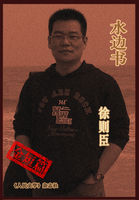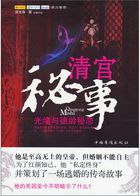THE ROOM into which the three were ushered was the Controller’s study.
“His fordship will be down in a moment.” The Gamma butler left them to themselves.
Helmholtz laughed aloud.
“It’s more like a caffeine-solution party than a trial,” he said, and let himself fall into the most luxurious of the pneumatic arm-chairs. “Cheer up, Bernard,” he added, catching sight of his friend’s green unhappy face. But Bernard would not be cheered; without answering, without even looking at Helmholtz, he went and sat down on the most uncomfortable chair in the room, carefully chosen in the obscure hope of somehow deprecating the wrath of the higher powers.
The Savage meanwhile wandered restlessly round the room, peering with a vague superficial inquisitiveness at the books in the shelves, at the sound-track rolls and reading machine bobbins in their numbered pigeon-holes. On the table under the window lay a massive volume bound in limp black leather-surrogate, and stamped with large golden T’s. He picked it up and opened it. MY LIFE AND WORK, BY OUR FORD. The book had been published at Detroit by the Society for the Propagation of Fordian Knowledge. Idly he turned the pages, read a sentence here, a paragraph there, and had just come to the conclusion that the book didn’t interest him, when the door opened, and the Resident World Controller for Western Europe walked briskly into the room.
Mustapha Mond shook hands with all three of them; but it was to the Savage that he addressed himself. “So you don’t much like civilization, Mr. Savage,” he said.
The Savage looked at him. He had been prepared to lie, to bluster, to remain sullenly unresponsive; but, reassured by the good-humoured intelligence of the Controller’s face, he decided to tell the truth, straightforwardly. “No.” He shook his head.
Bernard started and looked horrified. What would the Controller think? To be labelled as the friend of a man who said that he didn’t like civilization–said it openly and, of all people, to the Controller–it was terrible. “But, John,” he began. A look from Mustapha Mond reduced him to an abject silence.
“Of course,” the Savage went on to admit, “there are some very nice things. All that music in the air, for instance…”
“Sometimes a thousand twangling instruments will hum about my ears and sometimes voices.”
The Savage’s face lit up with a sudden pleasure. “Have you read it too?” he asked. “I thought nobody knew about that book here, in England.”
“Almost nobody. I’m one of the very few. It’s prohibited, you see. But as I make the laws here, I can also break them. With impunity, Mr. Marx,” he added, turning to Bernard. “Which I’m afraid you can’t do.”
Bernard sank into a yet more hopeless misery.
“But why is it prohibited?” asked the Savage. In the excitement of meeting a man who had read Shakespeare he had momentarily forgotten everything else.
The Controller shrugged his shoulders. “Because it’s old; that’s the chief reason. We haven’t any use for old things here.”
“Even when they’re beautiful?”
“Particularly when they’re beautiful. Beauty’s attractive, and we don’t want people to be attracted by old things. We want them to like the new ones.”
“But the new ones are so stupid and horrible. Those plays, where there’s nothing but helicopters flying about and you feel the people kissing.” He made a grimace. “Goats and monkeys!” Only in Othello’s word could he find an adequate vehicle for his contempt and hatred.
“Nice tame animals, anyhow,” the Controller murmured parenthetically.
“Why don’t you let them see Othello instead?”
“I’ve told you; it’s old. Besides, they couldn’t understand it.”
Yes, that was true. He remembered how Helmholtz had laughed at Romeo and Juliet. “Well then,” he said, after a pause, “something new that’s like Othello, and that they could understand.”
“That’s what we’ve all been wanting to write,” said Helmholtz, breaking a long silence.
“And it’s what you never will write,” said the Controller. “Because, if it were really like Othello nobody could understand it, however new it might be. And if were new, it couldn’t possibly be like Othello.”
“Why not?”
“Yes, why not?” Helmholtz repeated. He too was forgetting the unpleasant realities of the situation. Green with anxiety and apprehension, only Bernard remembered them; the others ignored him. “Why not?”
“Because our world is not the same as Othello’s world. You can’t make flivvers without steel–and you can’t make tragedies without social instability. The world’s stable now. People are happy; they get what they want, and they never want what they can’t get. They’re well off; they’re safe; they’re never ill; they’re not afraid of death; they’re blissfully ignorant of passion and old age; they’re plagued with no mothers or fathers; they’ve got no wives, or children, or lovers to feel strongly about; they’re so conditioned that they practically can’t help behaving as they ought to behave. And if anything should go wrong, there’s soma. Which you go and chuck out of the window in the name of liberty, Mr. Savage. Liberty!” He laughed. “Expecting Deltas to know what liberty is! And now expecting them to understand Othello! My good boy!”
The Savage was silent for a little. “All the same,” he insisted obstinately, “Othello’s good, Othello’s better than those feelies.”
“Of course it is,” the Controller agreed. “But that’s the price we have to pay for stability. You’ve got to choose between happiness and what people used to call high art. We’ve sacrificed the high art. We have the feelies and the scent organ instead.”
“But they don’t mean anything.”
“They mean themselves; they mean a lot of agreeable sensations to the audience.”
“But they’re…they’re told by an idiot.”
The Controller laughed. “You’re not being very polite to your friend, Mr. Watson. One of our most distinguished Emotional Engineers…”
“But he’s right,” said Helmholtz gloomily. “Because it is idiotic. Writing when there’s nothing to say…”
“Precisely. But that require the most enormous ingenuity. You’re making fiivvers out of the absolute minimum of steel–works of art out of practically nothing but pure sensation.”
The Savage shook his head. “It all seems to me quite horrible.”















